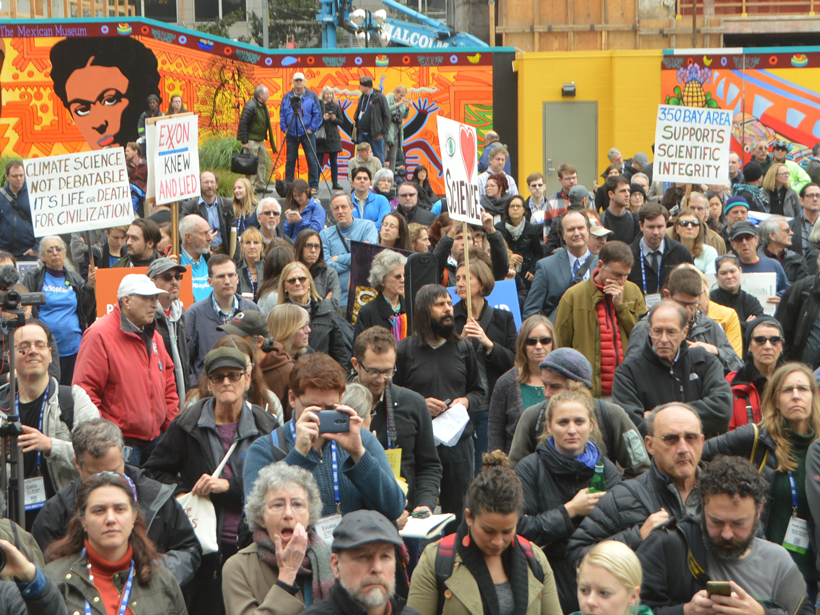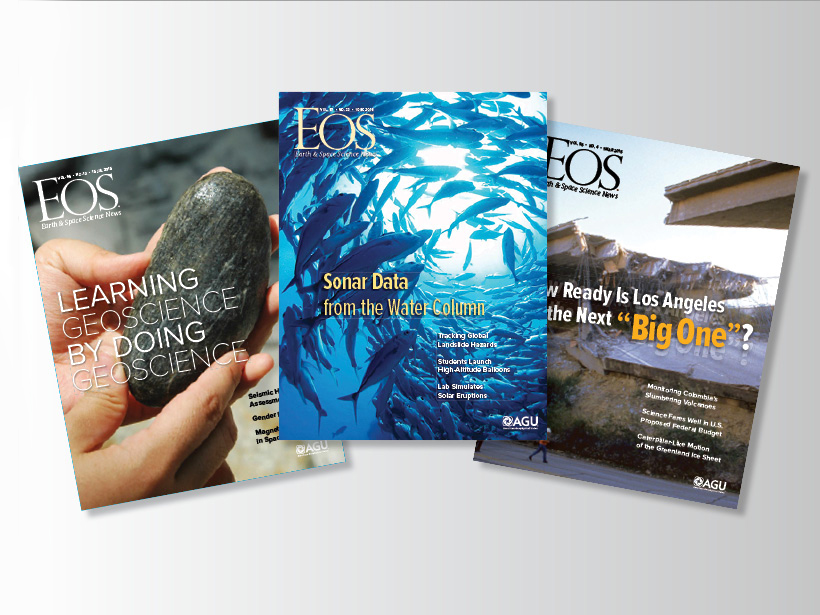Richard B. Alley was awarded the 2016 Climate Communication Prize at the American Geophysical Union (AGU) Fall Meeting Honors Ceremony, held on 14 December 2016 in San Francisco, Calif. The Climate Communication Prize is funded by Nature's Own, a purveyor of fossils, minerals, and handcrafted jewelry in Boulder, Colo. The prize honors an AGU member-scientist "for the communication of climate science" and "highlights the importance of promoting scientific literacy, clarity of message, and efforts to foster respect and understanding of science-based values as they relate to the implications of climate change."
science communication
Alexandra Witze Receives 2016 David Perlman Award for Excellence in Science Journalism–News
Alexandra Witze received the 2016 David Perlman Award for Excellence in Science Journalism–News at the American Geophysical Union Fall Meeting Honors Ceremony, held on 14 December 2016 in San Francisco, Calif. The award recognizes "a journalist for a news story or series in any medium except books that makes information about the Earth and space sciences accessible and interesting to the general public."
Lizzie Wade Receives 2016 Walter Sullivan Award for Excellence in Science Journalism–Features
Lizzie Wade received the 2016 Walter Sullivan Award for Excellence in Science Journalism–Features at the American Geophysical Union Fall Meeting Honors Ceremony, held on 14 December 2016 in San Francisco, Calif. The award recognizes "a journalist for a feature story or series in any medium except books that makes information about the Earth and space sciences accessible and interesting to the general public."
Roberta Marie Johnson Receives 2016 Athelstan Spilhaus Award
Roberta Marie Johnson received the 2016 Athelstan Spilhaus Award at the American Geophysical Union Fall Meeting Honors Ceremony, held on 14 December 2016 in San Francisco, Calif. The award honors an individual "for their enhancement of the public engagement with Earth and space sciences."
Fearful of Trump, Hundreds in San Francisco Rally for Science
Speakers called on scientists not to remain silent in the face of what they said are threats to the Earth sciences.
Moving Forward at Fall Meeting Against Harassment
With buttons, signage, nine planned events, and a Thunderclap campaign, Fall Meeting will combat harassment and support a safe and welcoming scientific community.
Increased Depth, Impact, and Sustainability: Eos Magazine Goes Monthly
This shift means that the magazine will be more substantial, with an increase in each issue’s page count to offer more features and in-depth reporting.
From Science to Storytelling: An Experiment in Journalism
From ominous deadlines to Internet trolls, AGU's 2016 AAAS Mass Media Fellow recounts his experience writing for National Geographic as a science journalist.
AGU Should Sever Its Ties with ExxonMobil
AGU and its funders should be held to the same standards of evidence-based scrutiny that it expects of the scientists who publish in its own journals.
Climate Change Omitted from Presidential Debate Questions
Climate advocates and scientists express dismay that none of the moderators of the three debates brought up the issue of climate change.






